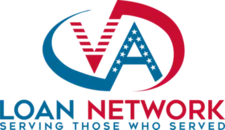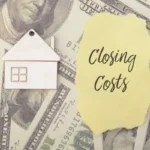VA Funding Fees: A Detailed Guide

VA loans are a valuable resource for veterans, active-duty service members, and some surviving spouses, helping them purchase homes with fewer financial barriers.
A key component of VA loans is the VA funding fee—a one-time charge that helps keep the loan program running, ensuring that it remains accessible to future borrowers.
The funding fee is a small cost that helps the Department of Veterans Affairs maintain the program’s long-term sustainability, providing benefits like zero-down payment options, competitive interest rates, and no private mortgage insurance (PMI).
Understanding how the VA funding fee works is crucial for any borrower considering using their VA loan benefits.
What is the VA Funding Fee?
The VA funding fee is a one-time charge paid to the U.S. Department of Veterans Affairs (VA) during the closing process of a VA-backed loan.
-
Purpose
This fee offsets the cost of the VA’s loan guarantee program, which protects lenders if borrowers default.Amount
The fee is calculated as a percentage of the loan amount, typically ranging from 0.5% to 3.3%. The specific percentage depends on factors such as:- Down payment: Larger down payments may reduce the fee.
- Loan purpose: Whether the loan is for a home purchase, refinance, or equity access.
- Usage: First-time VA loan users usually pay a lower fee than repeat borrowers.
Exemptions
Borrowers receiving VA disability compensation are often exempt from this fee.Negotiation
Sellers may agree to cover part or all of the funding fee, but their contribution cannot exceed 4% of the loan amount.Other closing costs, such as lender origination fees, recording fees, and title insurance, may also apply to VA loans.
Current VA Funding Fee Rates
| Loan Type | Down Payment | First-Time Use | Subsequent Use |
|---|---|---|---|
| Purchase Loan | 0% | 2.3% | 3.6% |
| Purchase Loan | 5% or more | 1.65% | 1.65% |
| Purchase Loan | 10% or more | 1.4% | 1.4% |
| Cash-Out Refinance Loan | 0% | 2.3% | 3.6% |
| Interest Rate Reduction Refinance Loan (IRRRL) | N/A | 0.5% | 0.5% |
| Native American Direct Loan (NADL) | N/A | 1.25% | 1.25% |
Notes:
- Exemptions: Borrowers receiving VA disability compensation, Purple Heart recipients, and certain surviving spouses are exempt from the VA funding fee.
- Financing the Fee: Borrowers can roll the funding fee into the loan amount instead of paying it upfront at closing.
How do you Avoid the VA funding fee?
Some veterans may skip the funding fee entirely. These exemptions apply to:
- Veterans receiving VA compensation for service-connected disabilities.
- Purple Heart recipients.
- Certain surviving spouses who meet specific conditions.
Having the funding fee waived can lead to significant savings at the closing table.
Explanation of Funding Fee Refunds
Borrowers may qualify for a refund of the VA funding fee in specific circumstances, such as:
- Disability Compensation Decision: If a borrower was awaiting a decision on disability compensation at the time of loan closing and later receives approval, they may qualify for a refund.
- Overpayment: If the funding fee amount was calculated incorrectly, the borrower can request a refund.
Steps to Claim a Refund:
- Contact your lender to initiate the process.
- Provide documentation of your VA disability status or proof of overpayment.
- The refund will be applied to the loan balance or sent directly to the borrower.
Clarification on Funding Fee Payment Options
Borrowers can choose how to pay the VA funding fee, with options including:
- Upfront Payment: Pay the fee at closing, reducing the total loan amount.
- Financing the Fee: Roll the fee into the loan balance, spreading payments over time.
Considerations:
- Financing the fee increases the total loan cost and monthly payments.
- Paying upfront minimizes interest accrued over the loan term.
Discussion on the Impact of the Funding Fee on Loan Costs
The VA funding fee influences the overall cost of a loan in several ways:
- Monthly Payments: Rolling the fee into the loan increases the principal, resulting in higher monthly payments.
- Total Loan Cost: Financing the fee leads to more interest paid over the life of the loan.
Example of Cost Impact:
| Loan Amount | Funding Fee | Total Loan Amount (with Fee) | Monthly Payment |
|---|---|---|---|
| $250,000 | 2.3% ($5,750) | $255,750 | $1,453 (at 5%) |
| $250,000 | 0% (Exempt) | $250,000 | $1,432 (at 5%) |
Information on Other VA Loan Types and Their Associated Funding Fees
VA loan programs have varying funding fees:
- Purchase Loans: 2.3% for first-time use, 3.6% for subsequent use.
- Cash-Out Refinance Loans: 2.3% or 3.6%, depending on usage.
- Interest Rate Reduction Refinance Loan (IRRRL): Flat 0.5% funding fee.
- Native American Direct Loan (NADL): 1.25% funding fee.
Table of Fees by Loan Type:
| Loan Type | First-Time Use | Subsequent Use | Exemptions |
|---|---|---|---|
| Purchase Loan | 2.3% | 3.6% | Disability, Purple Heart |
| Cash-Out Refinance | 2.3% | 3.6% | Same as above |
| IRRRL | 0.5% | 0.5% | Same as above |
| NADL | 1.25% | 1.25% | Same as above |
Insights into Recent Changes or Updates to Funding Fee Rates
Recent updates to VA funding fees include:
- April 2023 Adjustments: Slight reductions in funding fees for purchase loans and refinances.
- Current Rates: First-time users pay 2.3% with no down payment; 1.4% with a 10% down payment.
- Legislative Impact: Changes aim to reduce financial barriers for veterans and their families.
Note: Stay informed about funding fee updates via reliable sources like Military.com or the VA’s official site.
Other Upfront Costs Associated with VA Loans
While the funding fee is important, there are other upfront costs to consider when securing a VA loan:
- Closing Costs: Typically range from 3% to 5% of the home’s purchase price. These cover lender fees, title insurance, and more.
- Appraisal Fees: Required to determine the property value, usually between $300 and $500.
- Home Inspection Fees: Not mandatory but highly recommended. Costs vary based on the property.
- Title Insurance: Protects against future claims on the title of the property.
- Property Taxes: These might need to be paid upfront during the closing process.
- Homeowner’s Insurance: Most lenders require this, and you might need to cover the premium at closing.
- Prepaid Interest: Depending on your closing date, you may need to pay interest from that date to the end of the month.
How the VA Funding Fee Affects Borrowers
A unique benefit of the VA funding fee is that it can be included in the loan amount. This allows borrowers to lower their immediate costs. For instance:
- If a borrower purchases a home for $300,000 with a 2.3% funding fee, the total loan amount could be adjusted to approximately $306,900.
Financial Planning and Considerations
Here are key points to consider when budgeting for a VA loan:
- Monthly Payments: Including the funding fee may increase monthly payments slightly, which can add up over time.
- Budgeting for Homeownership: Remember to budget for property taxes, homeowner’s insurance, and HOA fees, in addition to your monthly mortgage.
- Long-Term Financial Perspective: While the zero down payment is attractive, financing the funding fee may lead to a larger total loan amount compared to making a down payment.
The Importance of VA Funding Fees
For any veteran or service member considering a VA loan, understanding the funding fee is essential. It impacts your overall cost of borrowing and making informed decisions about your financing options can lead to significant savings.
Financial Strategies for VA Loan Borrowers
Navigating the VA loan program and the related funding fee requires careful planning. Here are strategies to consider:
- Assess Your Financial Situation: Check your credit score, debt levels, and savings to ensure you’re ready to buy.
- Maximize VA Benefits: Take full advantage of the VA loan features, including the absence of PMI and lower rates.
- Obtain Pre-Approval: Secure a pre-approval letter before shopping for homes to streamline the buying process.
- Think Long-Term: Recognize that purchasing a home is a long-term investment. Evaluate the long-term benefits of owning a home, including appreciation and tax advantages.
- Consult Experts: Work with a lender who specializes in VA loans for tailored advice. They can help you understand the funding fee’s impact.
The Bottom Line
The VA funding fee is an essential aspect of the VA loan program, designed to ensure its availability for future generations of veterans and service members. Though it adds a one-time cost, understanding its structure and implications is key to effective financial planning.
As the housing market experiences rising interest rates and low inventory, leveraging VA loan benefits remains an advantageous choice for those who have served. By staying informed about the funding fee and current market conditions, borrowers can make educated decisions that enhance their journey toward homeownership.
With thoughtful planning and proactive engagement, veterans and active-duty service members can successfully navigate the home-buying process.
Frequently Asked Questions
What is the VA funding fee?
The VA funding fee is a one-time payment made to the Department of Veterans Affairs (VA) by borrowers using a VA-backed or direct home loan. It offsets the cost of the VA loan program and ensures its sustainability for future veterans.
How much is the VA funding fee?
The VA funding fee varies based on loan type, down payment amount, and whether it’s the borrower’s first use of a VA loan. For first-time use with no down payment, the fee is typically 2.3% of the loan amount. For subsequent uses, it increases to 3.6%. A down payment reduces the fee percentage.
Who is exempt from paying the VA funding fee?
Certain individuals are exempt, including veterans receiving VA compensation for a service-connected disability, veterans entitled to receive compensation but receiving retirement or active-duty pay instead, and surviving spouses of veterans who died in service or due to a service-connected disability.
Can the VA funding fee be financed?
Yes, borrowers can finance the VA funding fee by rolling it into the loan amount, spreading the cost over the loan’s term. Alternatively, they can pay it upfront at closing.
Is the VA funding fee refundable?
If a borrower was charged the fee but later qualifies for an exemption, such as being awarded VA disability compensation with an effective date before the loan closing, they may be eligible for a refund. Refunds can be requested through the mortgage holder or VA Regional Loan Center.
How does the VA funding fee affect monthly mortgage payments?
When financed, the VA funding fee increases the total loan amount, slightly raising monthly mortgage payments. Paying the fee upfront avoids this increase.
Are there different VA funding fee rates for different types of loans?
Yes, funding fee rates vary by loan type. Purchase and construction loans depend on down payment and usage, cash-out refinance loans typically have higher rates, and Interest Rate Reduction Refinance Loans (IRRRLs) carry a lower fee of 0.5%.
Why does the VA charge a funding fee?
The fee helps cover the costs of the VA home loan program, reducing reliance on taxpayer funding. It ensures the program remains available to future veterans.









